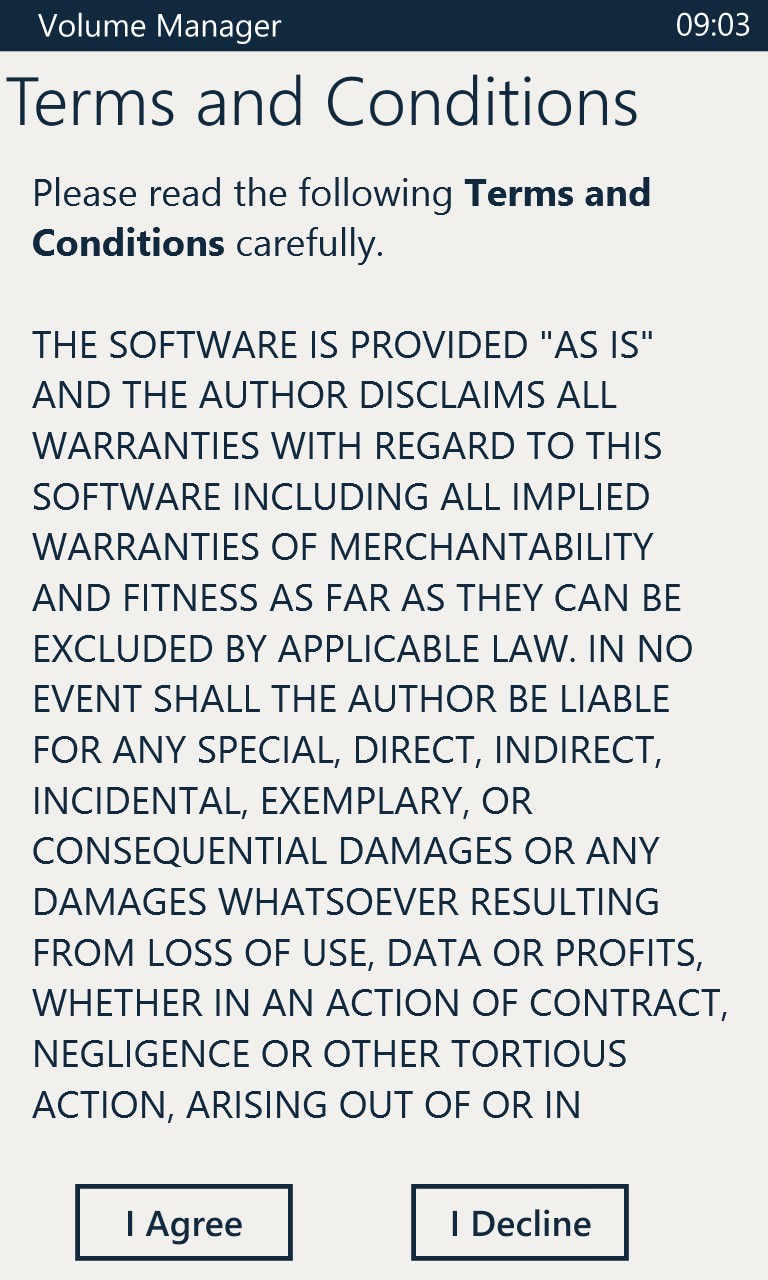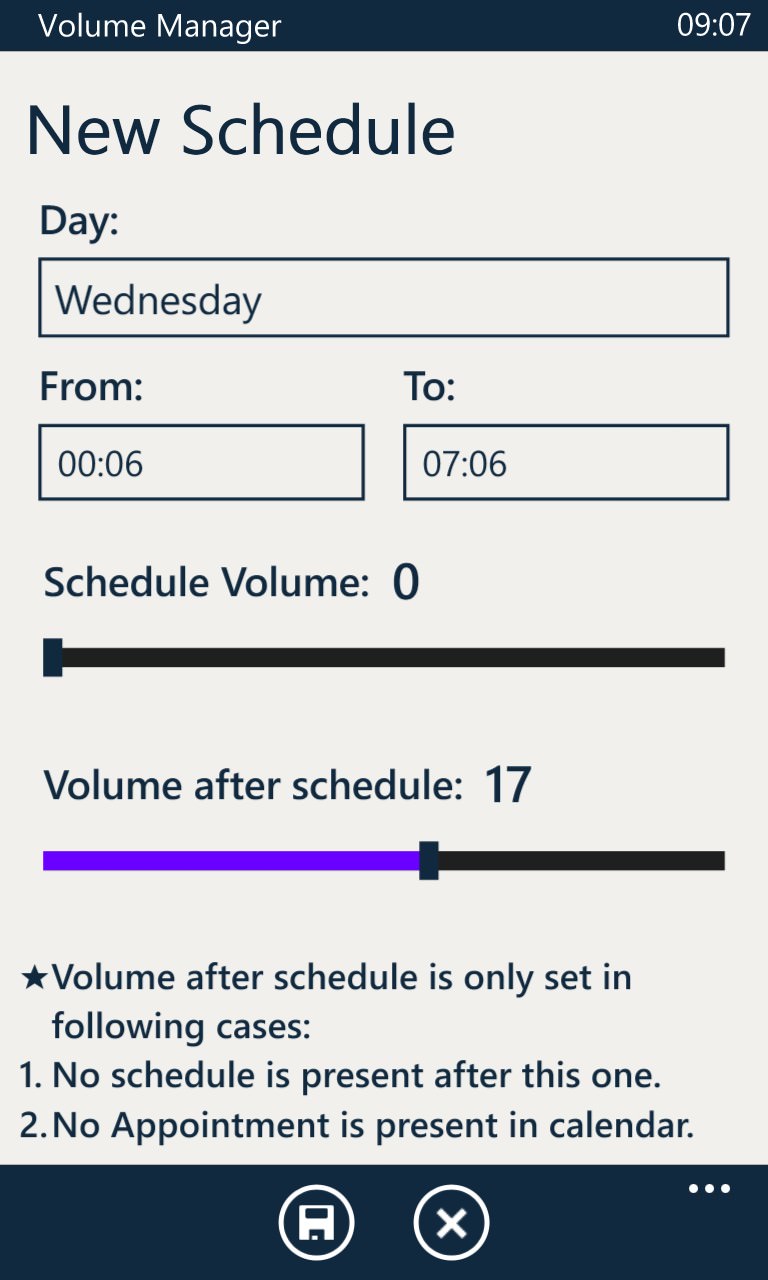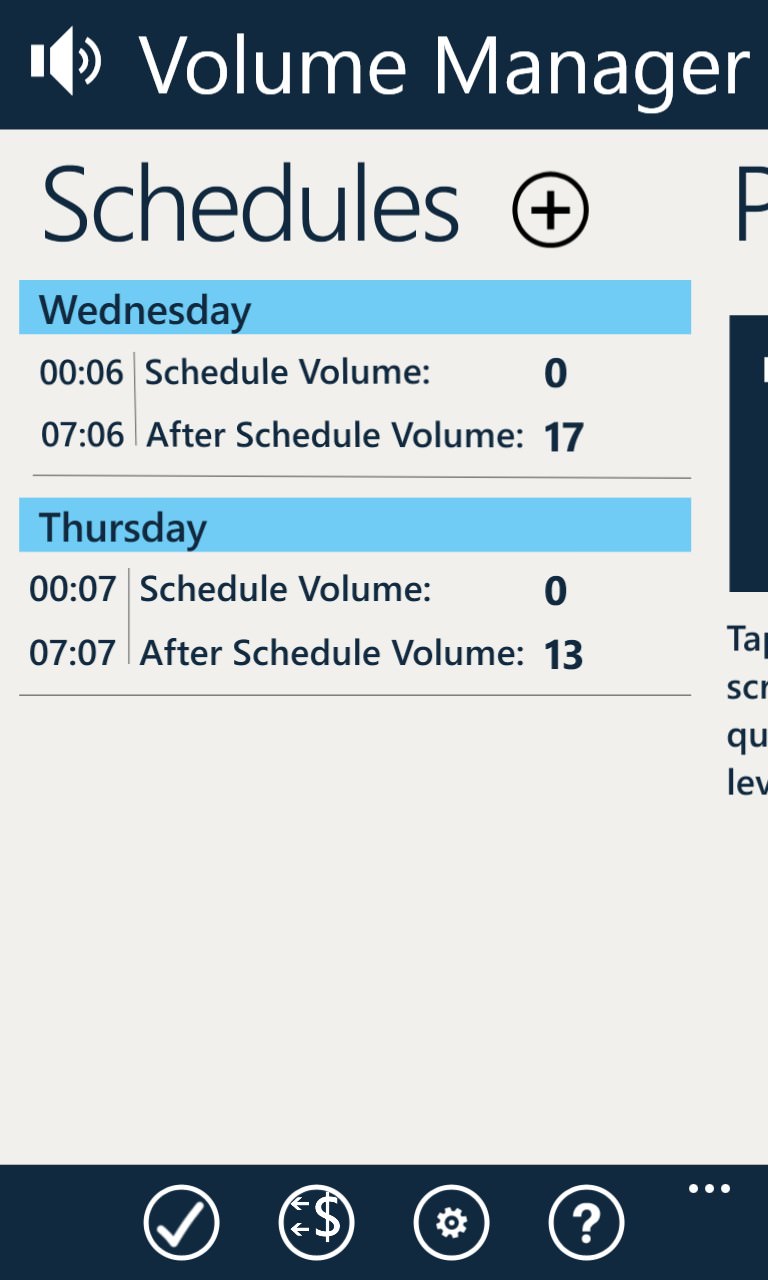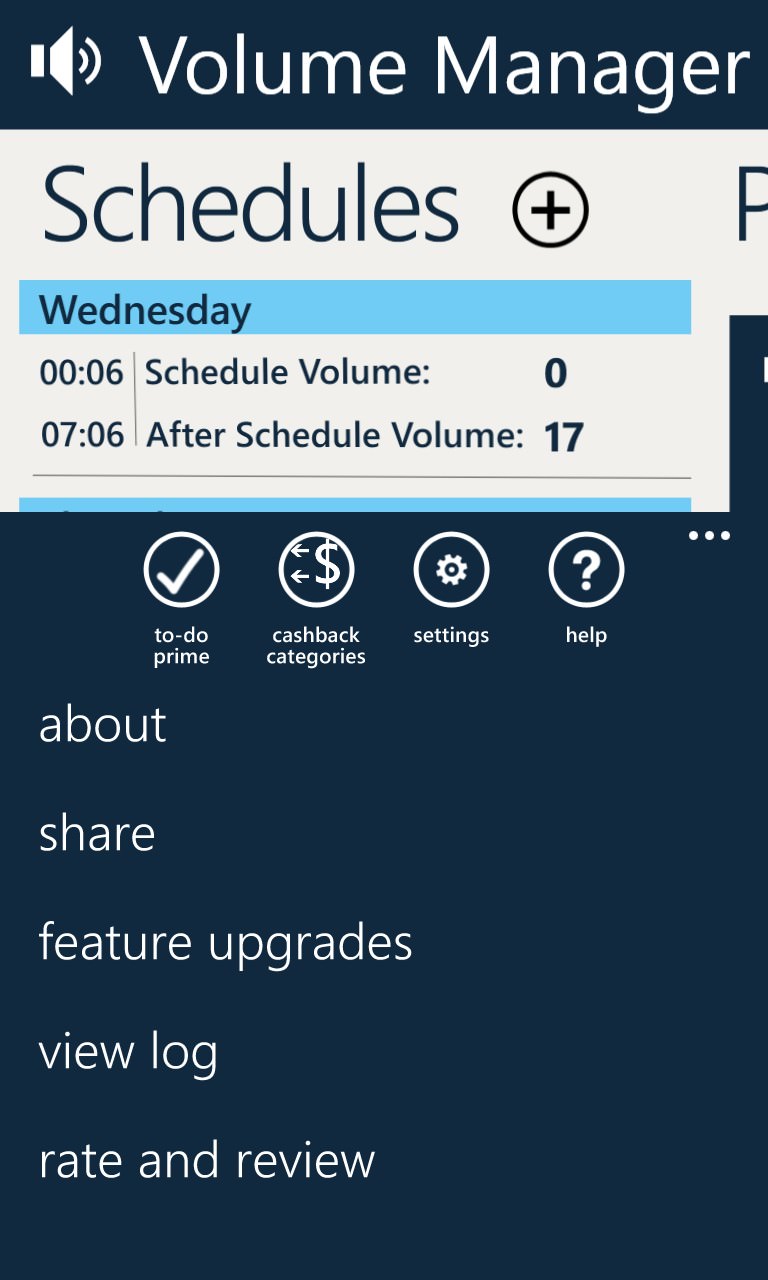From the description in the Windows Phone Store:
Volume Manager sets the volume of your phone as per defined schedules and appointments in calendar.
Were you ever embarrassed in a meeting because your phone rang?
Was your sleep ever disturbed because of your phone's volume?
Well not anymore, use Volume Manager app to silence your phone or to set the volume of your phone to desired level when you are in meeting.
Use schedules in Volume Manager app to silence it when you are in bed.
Features:
1. Define multiple schedules with custom volume level.
2. Define Appointment volume level.
3. Create a tile to mute your phone.
4. Create multiple volume level tiles to quickly set the phone volume to desired level.
★ FREE app allows only 1 Schedule per day.
★ Multiple Schedules per day requires in-app purchase.
★ Appointment Volume requires in-app purchase.
Which all sounds fine and you may be wondering why something like Volume Manager hasn't appeared before - if it's this easy to control device volume? It turns out that it's not easy - Volume Manager does what it does by using a special background agent, a category of application that has to run under severe restrictions by Windows Phone, namely:
- The changing of device volume relies on the OS allowing the background agent to run at all - even when manually enabled in Settings, there's a delay of up to 30 minutes between a scheduled muting and it actually happening.
- In the case of Calendar-triggered muting, it might happen up to 15 minutes before or 15 minutes after the meeting start time.
- The device volume overrides all other alarms and phone calls, even if it's your daily wake-up alarm or a call from your spouse (etc.) - so you'll want to set up any scheduled times very conservatively.
- You have to go into Volume Manager at least once every seven days, otherwise the background task gets disabled by Windows Phone.
- If battery level gets low, the background agent won't be run at all, so muting (or unmuting) might not happen at all.
Provided you can live with these restrictions, though, Volume Manager might be worth a look. Here are some screens of it in action:


Eekk! A EULA!? Shades of desktop applications from the 1990s! Is this really necessary in a Windows Phone application in 2014? (right) Setting up a new scheduled muting....


If you want a simple 'mute while I sleep' schedule (as here) then you'll have to set it up for each day (per week) - which is fair enough, as a one time thing; (right) in addition to the opening EULA, having two of the main toolbar icons dedicated to forcing other apps from the developer down your throat is overstepping the mark in terms of UI, I think.
There's potential here, but only once the developer has rethought his presentation and Windows Phone itself has empowered background agents a little more, perhaps in v8.1. In the meantime, you can download the base application free in the Store.
